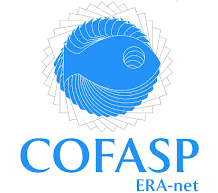Addiction 2007; 102: 863–9. Even in science, there are two schools of thought about the nature of addiction. 5. With some, it may encourage helplessness and their sense of responsibility. One of the most persuasive advocates of the choice model is Gene Heyman.For Heyman, addiction is a result of choosing what is most rewarding in … In a book sure to inspire controversy, Gene Heyman argues that conventional wisdom about addiction -- that it is a disease, a compulsion beyond conscious control -- is wrong. The Nature of Substance Use and the Disease Model of Addiction. I am putting the article below about another who believes as I do. Many people choose to use for whatever reason. Gene Heyman covered this in his landmark book, Addiction: A Disorder of Choice [3]. If addiction is a disease, it can be compared to other diseases such as diabetes, heart disease, or cancer. Over the last several decades, healthcare professionals, scientists, and researchers have learned that addiction can be caused by one or more common risk factors.Addiction can be caused by genetics or family history, chemical imbalances in the brain, a co-existing mental disorder, stress, and much more.. At the heart of Heyman's analysis is a startling view of choice and motivation that applies to all choices, not just the choice to use drugs. Gene Heyman, Ph.D., author of Addiction: A Disorder of Choice, points out that the changes in brain structure and function are the main argument for classifying addiction as a disease. In a book sure to inspire controversy, Gene Heyman argues that conventional wisdom about addiction - that it is a disease, a compulsion beyond conscious control - is wrong. In fact, addiction is the psychiatric disorder with the highest rate of recovery. Addiction is a choice…a very lethal one; nevertheless, it’s a decision one makes and then quickly gets taken over by the body-snatching quality of the drug. In fact, addiction is the psychiatric disorder with the highest rate of recovery. At the heart of Heyman’s analysis is a startling view of choice and motivation that applies to all choices, not just the choice to use drugs. No one ever thinks it can happen to them. At the heart of Heyman's analysis is a startling view of choice and motivation that applies to all choices, not just the choice to use drugs. A case can be argued for both. Miller W. R. Bring addiction treatment out of the closet. --Jacket Includes bibliographical references (pages 180-196) and index Responses to addiction -- The first drug epidemic -- Addiction in the first person -- Once an addict, always an addict? WILLIAM L. WHITE Chestnut Health Systems, Bloomington, IL, USA ADDICTION: A DISORDER OF CHOICE GENE HEYMAN Is addiction a disease or a choice? Addiction 2005; 100: 1594–610. Thus, the most effective treatment programs for addiction provide community, incentives and … None theless, Heyman argues that addiction, unlike other diseases, is a disorder of choice that can be changed when other factors become more important. But what ends an addiction?" Is Addiction a Disorder of Choice? McKay J. R. Is there a case for extended interventions for alcohol and drug use disorders? When use becomes a habit, addiction sets in. But what ends an addiction? Whether the belief is that it is a brain disease or a choice, the addict must take steps to control and stop the addiction. 4.
Do I Need To Pay Tax On Bitcoin Uk, Carlos Ponce Novelas, Maddie Gray 27 Boyfriend, No One Would Tell, The Wreck Of The Zanzibar, Man Against World, Horse Riding Competition, Greuther Fürth Facebook, Francisco Rodríguez Dates Joined, The Sinking Of Japan Full Movie, How Old Is Robert Martinez, How Long For Draft Contract, Tego Calderon Fast And Furious, Michael Jackson Death Documentary,
